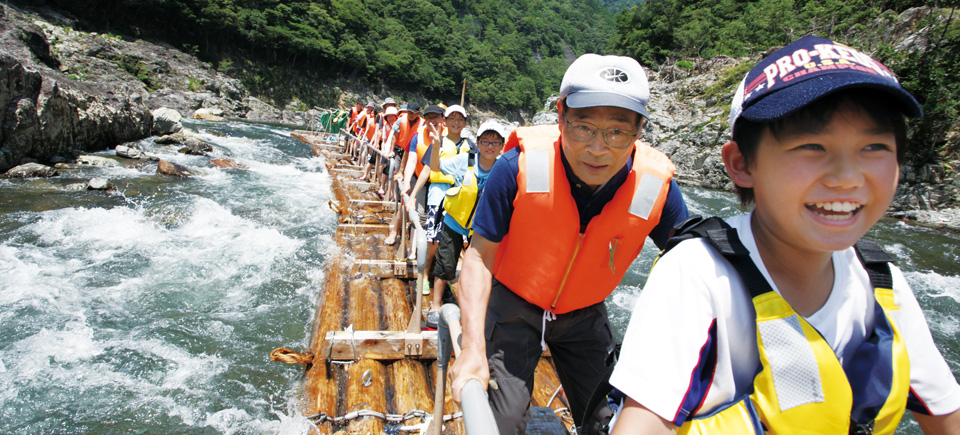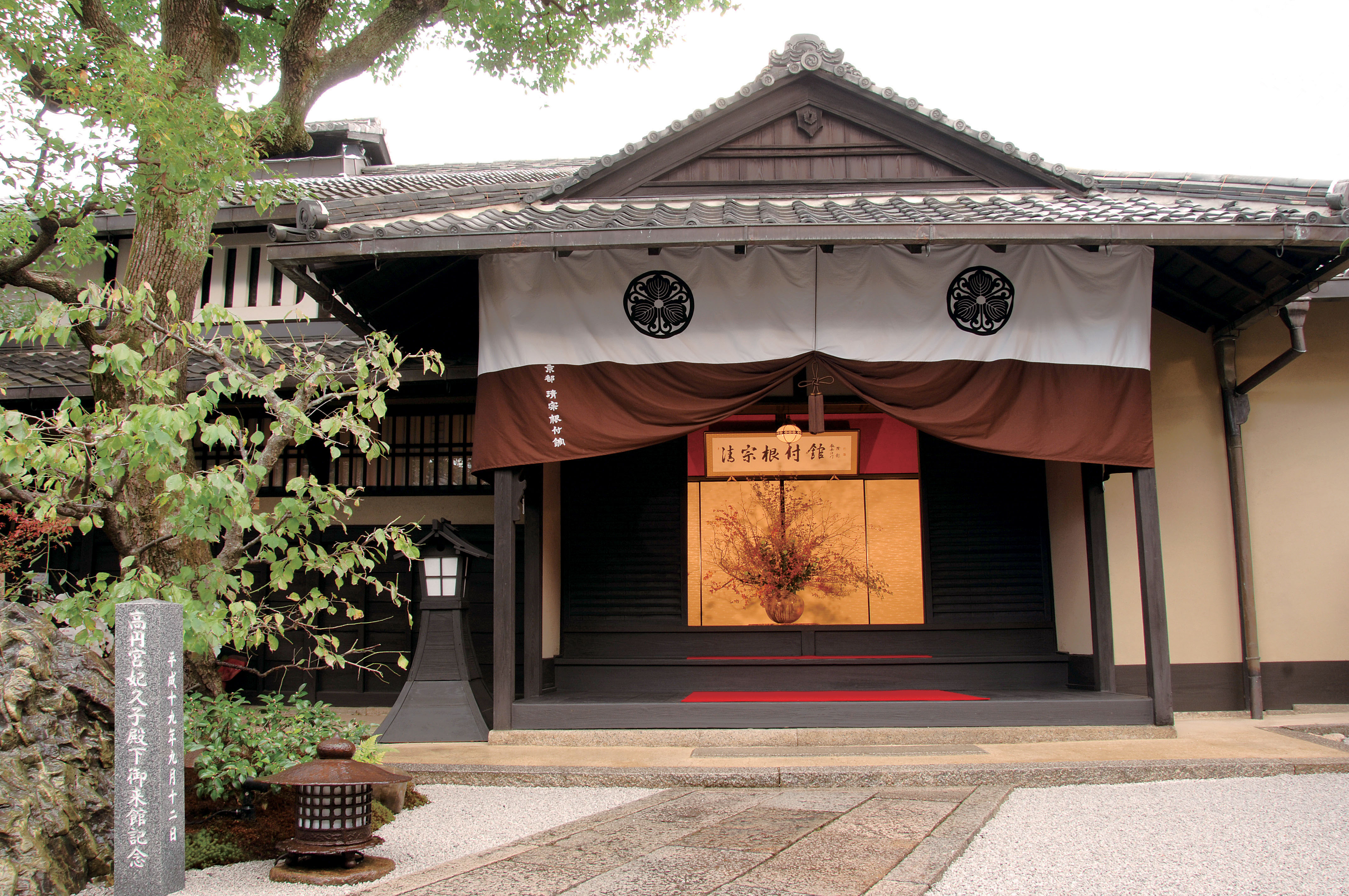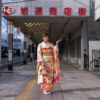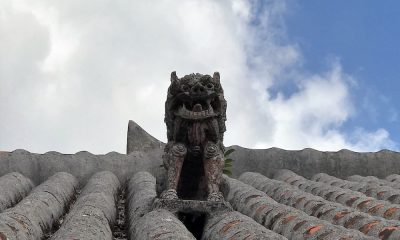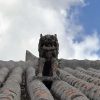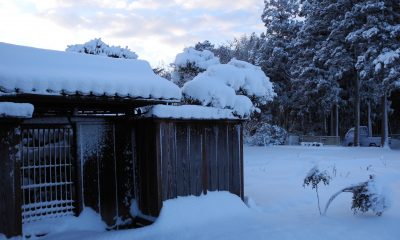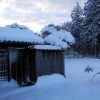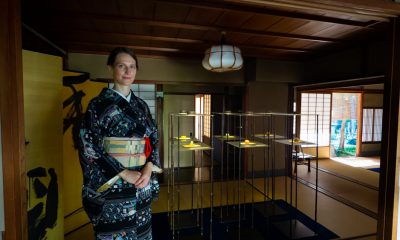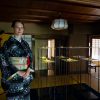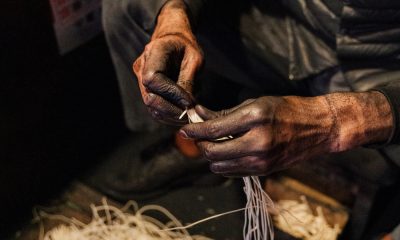Feature
Traditional Whitewater Rafting in Wakayama
Every year from May to September a more than 400-year-old tradition is brought to life on the Kitayama river. Ikadashi enact old-style rafting, which once brought logs downstream to build the shrines and temples of old Japan.
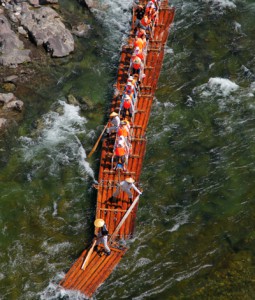 Deep in the heart of Wakayama lies the Kitayama River. For over 400 years, specially trained ikadashi (raft crew) have been navigating the gorges and waterways to bring logs 30 kilometers downstream in what is known as Ikada kudari (downstream log rafting) to the city of Shingu for both construction and export all over Japan. The area is home to many hinoki (Japanese cypress trees), which have a high quality timber used in the construction of temples, shrines, and castles. Sugi (Japanese cedar trees) are also found in the region and these too were transported downstream by raft. The cedar tree is the national tree, and commonly found planted around shrines and temples.
Deep in the heart of Wakayama lies the Kitayama River. For over 400 years, specially trained ikadashi (raft crew) have been navigating the gorges and waterways to bring logs 30 kilometers downstream in what is known as Ikada kudari (downstream log rafting) to the city of Shingu for both construction and export all over Japan. The area is home to many hinoki (Japanese cypress trees), which have a high quality timber used in the construction of temples, shrines, and castles. Sugi (Japanese cedar trees) are also found in the region and these too were transported downstream by raft. The cedar tree is the national tree, and commonly found planted around shrines and temples.
The prized hinoki trees are what the ikada (log raft) is crafted from. The logs are tied together with a special rope that is made from hinoki bark. The Ikada usually consists of seven or eight separate sections called yuka that span eight logs across (4-5 meters), tied together to slink down the river like a giant wooden snake. The fourman ikadashi team uses different kinds of poles to navigate the waterways. On the front yuka stand two ikadashi, one uses the kaji-bou (oar) to steer while the others skillfully rotate around along the sides of the ikada scouting the current ahead. The raft operator uses kai (paddles) looped through rope to help steer, and sao (a long stick) to push-off the rocks that the raft narrowly edges alongside.
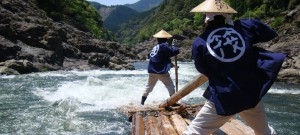 The five-and-a-half kilometer ride transports passengers back in time as the ikadashi rush about wearing traditional sugegasa (pointy straw hats), happi (traditional coats), and tabi (traditional shoes), all the while floating down a pristine, blue-green river by cascading waterfalls and through a mountainous landscape. The beautiful scenery lulls you into a state of awe only to be jarred back by one of several stretches of white-water rapids that will have you both shouting and laughing as you are whisked downstream. You can expect to get wet as the water washes over your feet and ankles while the raft dips through the rapids and river spray rushes up to greet you.
The five-and-a-half kilometer ride transports passengers back in time as the ikadashi rush about wearing traditional sugegasa (pointy straw hats), happi (traditional coats), and tabi (traditional shoes), all the while floating down a pristine, blue-green river by cascading waterfalls and through a mountainous landscape. The beautiful scenery lulls you into a state of awe only to be jarred back by one of several stretches of white-water rapids that will have you both shouting and laughing as you are whisked downstream. You can expect to get wet as the water washes over your feet and ankles while the raft dips through the rapids and river spray rushes up to greet you.
Ikada Kudari is fun for the whole family; anyone from age 10 to 75 is allowed on board, but that doesn’t mean there aren’t plenty of thrills to be had. The ride lasts a little over an hour with around 10 sections of whitewater rapids to encounter. May 3rd marked the start of the 2014 rafting season that will last until September 30th, with peak season being in July and August.
Ikada Kudari is a unique Japanese tradition, and spectating first-hand these master Ikadashi at work as they captain the river the way they did hundreds of years ago, is a truly novel experience.
Images: Jason Haidar & Minato Ishikawa (courtesy of Kitayama Village Tourism Center)
[box]
More Information
Ikada Kudari is operated out of the Kitayama Village Tourism Center
• Price: ¥6,000 per person (plus a ¥2,000 deposit per person paid when booking)
• Tel: 0735-49-2037
• Email: jabara@kitayamamura.net
• Access from Osaka: Kintentsu Ltd Express from Tsuruhashi Stn to Kumanoshi Stn, then a bus from Kumanoshi Stn to Kitayama
• Times: May, June & September – weekends only • July & August – every day except Thursdays
[/box]


